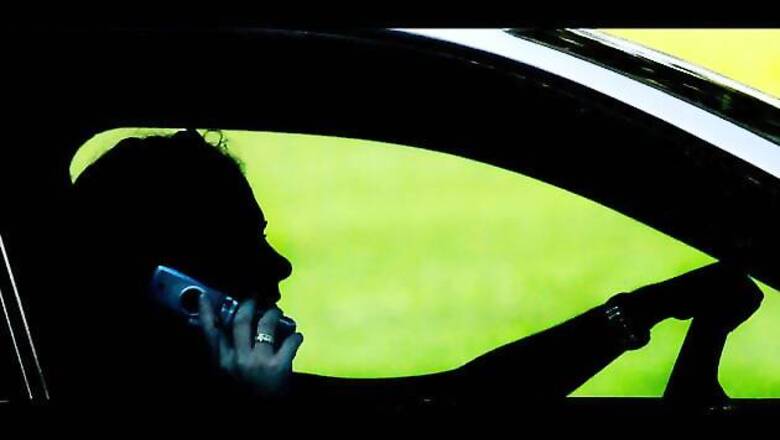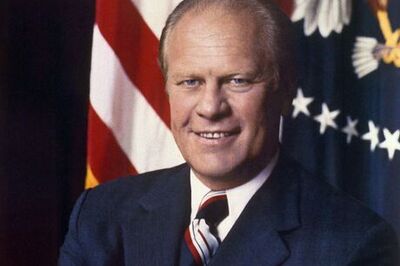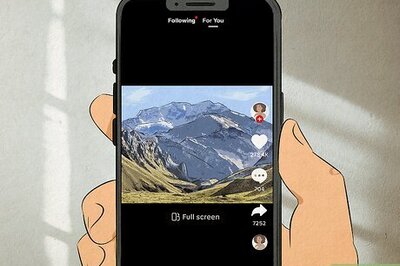
views
Washington: Banning the use of mobile phones while driving may be ineffective as people who talk on their cell while being behind the wheel might already be unsafe drivers, a new MIT study has claimed.
You can take the driver away from the cell phone, but you can't take the risky behaviour away from the driver, the new study from the MIT in Boston concludes.
The findings may explain why laws banning cell phone use in motor vehicles have had little impact on accident rates.
The study involved 108 people, equally divided into three age groups: 20s, 40s, and 60s.
For each person, the researchers correlated answers on a questionnaire with data collected from on-board sensors during a 40-minute test drive up Interstate 93 north of Boston.
The drivers commanded a black Volvo SUV tricked out with an eye tracker, heart and skin monitors, video cameras facing out the front and back windows, on-board sensors, and other research gear.
No cell phones were allowed during these trips. Instead, before they got behind the wheel, the study participants filled in answers about how often they used a cell phone while driving, how they felt about speeding and passing other cars, and how many times in the last year they had been warned or cited for speeding, running traffic lights and stop signs, and other infractions.
The team grouped the participants into "frequent users" (those who talked on the phone while driving a few times a week or more) and "rare users" (those who talked while driving a few times a month or less).
Compared with people who rarely talked as they steered, frequent cell phone users drove faster, changed lanes more frequently, spent more time in the left lane, and engaged in
more hard braking maneuvers and rapid accelerations, according to the SUV's on board equipment.
Frequent cell phone users, for example, zoomed along about 4.4 kilometres per hour faster on average and changed lanes twice as often, compared with rare users.
"These are not 'oh-my-god' differences," study leader Bryan Reimer, a human factors engineer at the Massachusetts Institute of Technology (MIT) in Cambridge, was quoted by
Science Mag as saying.
"They are subtle clues indicative of more aggressive driving." What's more, he said, other studies have linked these behaviors to an increased rate of crashes.
The findings were reported earlier this month in 'Accident Analysis & Prevention' and may explain why cell phone bans do not seem to work.
Still, cell phone bans may save lives, said David Strayer, a cognitive neuroscientist at the University of Utah in Salt Lake City.
"The MIT data indicate that regulation (banning cell phone use) may be reasonable so long as it is followed up with good enforcement, and that together these would result in a decrease in unsafe driving behavior," he said.

















Comments
0 comment